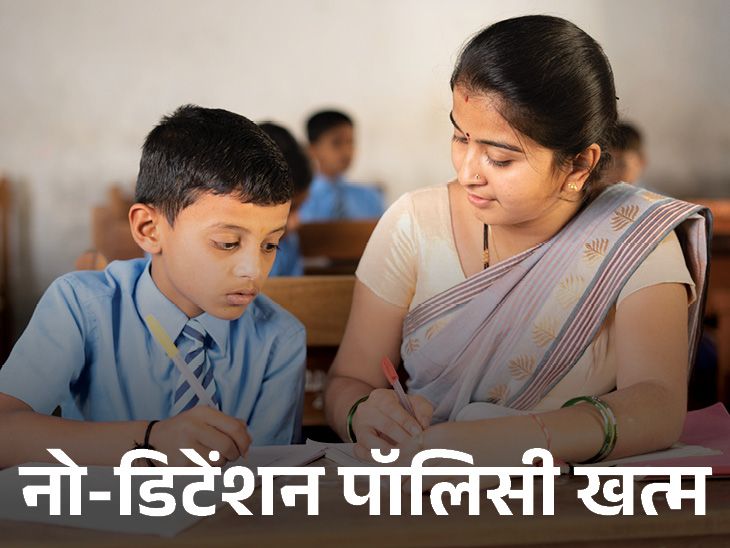16 states and 2 union territories (Delhi and Puducherry) have already ended the no-detention policy.
Students who fail the 5th and 8th grade exams will no longer pass. The central government ended the “no-detention policy” on Monday. Previously, according to this rule, students who failed were promoted to second class.
According to the new government notification, students who fail will be given the opportunity to re-examine within 2 months. If they fail again, they will not be promoted but will have to study again in the same class in which they were studying. The government has also added a provision that such children up to class 8 will not be expelled from school.
The no-detention policy has already ended in 16 states. The central government’s new policy will affect over 3,000 schools, including Kendriya Vidyalayas, Navodaya Vidyalayas and Sainik Schools. 16 states and 2 union territories (Delhi and Puducherry) have already abolished the no-detention policy. According to the Ministry of Education, school education is a state subject, so states can take their own decision in this regard.
Why did the government change policy?
In 2016, the Central Advisory Board of Education or CABE had suggested the Ministry of Human Resource Development to remove the ‘no detention policy’. CABE said that due to this policy, the learning level of students is declining.
Teachers did not have adequate resources to assess students under the no-detention policy. In most cases, students were not assessed at all. Less than 10% of schools across the country have teachers and infrastructure as per policy. The policy mainly focused on increasing student enrollment in primary education while the level of basic education continued to decline. Due to this, students became careless in their studies because they were no longer afraid of failing.
According to the Annual Education Report 2016, less than 48% of Class 5 students are able to read the Class 2 syllabus (2). In rural schools, only 43.2% of eighth graders can do simple division. Only one in four students in class 5 can read sentences in English. Many states and union territories have expressed concern over the impact of Article 16 on primary education.
The TSR Subramaniam Committee on Education and the Vasudev Devnani Committee formed under the aegis of CABE had also recommended repeal of the no-detention policy.
Why was no detention policy implemented?
The no-detention policy was part of the Right to Education 2009. It was a government initiative to improve the conditions of education in India. Its goal was to provide a better educational environment for children to continue attending school. Failure can damage students’ self-esteem. Apart from this, children also feel ashamed of failure which can cause them to fall behind in their studies. Therefore, no detention policy has been put in place so that children up to class 8 are not abandoned.
The bill was passed in the Lok Sabha in 2018 A bill to amend the right to education was introduced in the Lok Sabha in July 2018. It was intended to end the “no detention policy” implemented in schools. According to this, there was a demand for regular exams for students of classes 5th and 8th. Along with this, there was also talk of conducting re-examination within two months for failed students.
In 2019, this bill was passed in the Rajya Sabha. After that, state governments had the right to remove the “no detention policy” or keep it in effect. This means that the state government could have decided whether students should be promoted or classes should be repeated in case of failure in class 5 and 8.
——————————————–
…
You don’t get admission to IIM just by passing CAT, a good academic profile is also necessary.
The Indian Institute of Management (IIM), Kolkata has released the result of the common admission test i.e. CAT 2024 on December 19. Through the score, admission will be available in IIMs and 86 non-IIM institutes. However, all IIMs have certain criteria based on which candidates who pass CAT are selected. …

